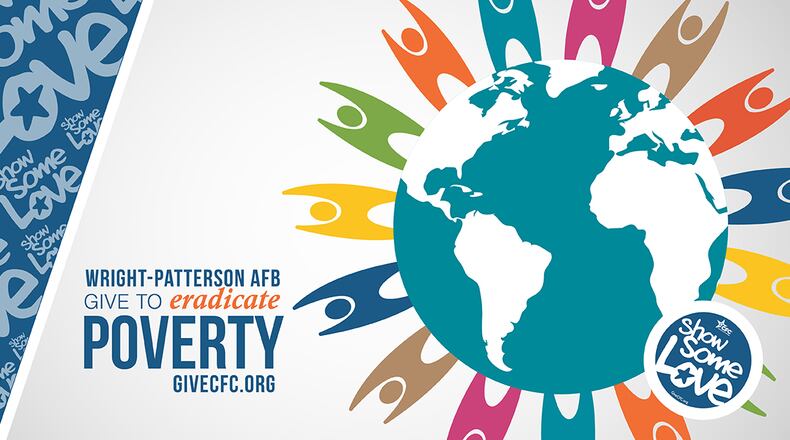The campaign allows federal employees and retirees to pledge monetary support and volunteer time to approved charities. This year it runs from Sept. 21 to Jan. 15, 2021.
Each week is dedicated to raising awareness for a specific cause including ending hunger, eradicating poverty, mental health and other issues important to the federal workforce community locally and across the nation. Federal workers can contribute to any of the thousands of participating charities by visiting the online pledge portal at https://GiveCFC.org.
This week’s cause: Eradicating poverty
Not everyone has access to basic necessities: food, clothing, shelter and employment/income. Many CFC charities offer support by providing immediate necessities and opportunities for long-term success, such as career counseling, access to quality education and resources.
Contributions, no matter the size, go a long way in making a difference in the lives of those suffering from extreme poverty. Fighting poverty ensures food security, economic development and overall community improvement.
A local organization that focuses on addressing poverty offers individualized services to single adults or families with children who have been or are currently homeless or are at risk of becoming homeless.
Its chief development officer said, “To move the needle on poverty in general, you have to focus on all three – shelter, income from employment, and food.” Otherwise, people will return to homelessness if support services are not in line, he said.
Poverty is a complex issue; a “cookie cutter” approach isn’t effective.
“Everyone has value; they are not disposable. There is no easy solution, such as ‘Just get a job’ or ‘Stop being lazy.’ You have to sit down and talk to someone to truly understand what they are going through. Looking at someone as if they are lazy and a job will solve all their problems isn’t realistic,” the longtime advocate said.
“It’s not like one event, one poor decision or one life circumstance caused their homelessness or poverty,” he continued. “It’s a domino effect.”
Growing up in poverty is enormously challenging. Individuals may not understand that educational opportunities and owning their own home can be their reality.
Layering support services, addressing such issues involving mental health, cognitive disorders or addiction, a lack of education or more is what can make people successful, he said.
“How do you quantify what success means? For some, it’s making a six-figure income, a house in the suburbs and college for their children. For someone else, it’s having held down a job for three years, living in the same place for two years and addressing their mental health issues; that is success, too.”
People looking at poverty issues may wonder what people living in poverty want.
“Their wants and dreams a lot of times are the same things we all want and dream about,” he said. “It’s that there are certain things they don’t see as even realistic or possible. It’s our job to help guide them down that path to achieving their goals – whatever those goals might be.”
The chief development officer said he can point to hundreds of people who were living in poverty who are now thriving members of society, living in a sustainable way, paying their taxes and giving back to society.
“To eradicate poverty, it’s our job to help eliminate barriers that are in front of vulnerable populations that prohibit them from pulling themselves out of poverty,” he said.
“All of us can look at our own family dynamics and close circle of friends; there are issues of mental health and dysfunction pretty much in every circle you can think of at some point. Those that turn their back on the homeless and/or the poor are really, in turn, turning their back on their own family and friends,” he said.
About the Author
